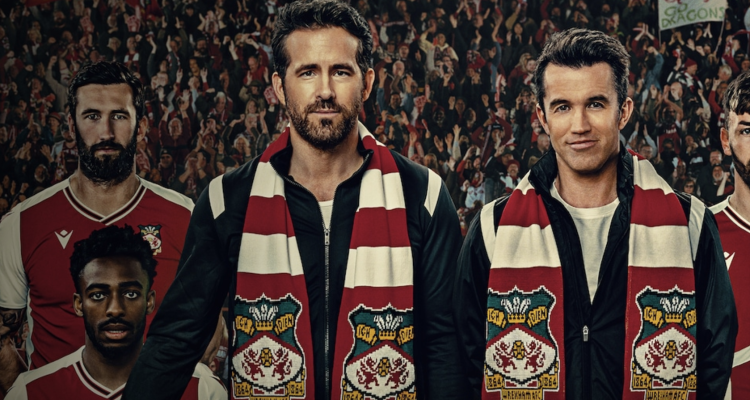“Welcome to Wrexham” is enjoying the underdog surge as final Emmy voting commences. The FX series follows Ryan Reynolds and Rob McElhenney, two Hollywood comedy icons who teamed up to buy a 5th tier Red Dragons soccer club in the hopes of inspiring a surge to the top of football hierarchy.
With its eighteen episode first season, the earned six Emmy nominations for reality programming, including Directing, Sound Mixing, Sound Editing, Cinematography, Picture Editing and Outstanding Unstructured Reality Program.
Awards Focus’ Byron Burton spoke with the editing team of Mohamed El Manasterly (editor), Curtis McConnell (editor), Michael Brown, (editor), Charles Little (ACE Editor) and Bryan Rowland (Additional Editor) for their Emmy nominated work on episode “Do or Die.”
Awards Focus: You all have quite the backstory with impressive accomplishments prior to this nomination. Can you briefly discuss how your editing experience and how you came to “Welcome to Wrexham”?
Michael Anthony Brown: I have worked in sports documentaries for over 12 years at this point, so the sports environment/pacing is something that I feel very comfortable with. But I was very excited to be working on a project that would let me expand on the genre a bit more, things I haven’t tried in the past, using more eclectic music beds during establishing scenes and during action.
Curtis McConnell: I’ve worked in a variety of genres of documentaries over the past 15 years. I moved more into the sports arena in the last 4 years, where I was able to learn and hone in my sports editing skills. This project utilized skills from all my past experiences, from musical scoring to storytelling to gameplay, and then also pushed me to try new things.
Mohamed El Manasterly: Music played a significant role in my upbringing; I was involved in DJing and playing percussion. My fascination with editing began during college, when I fell in love with it during an advertising class. I found striking similarities between crafting a DJ set and shaping a story. Both involve taking the audience on a journey filled with highs and lows. However, with editing, I have more tools at my disposal, including visuals, sound effects, and people. I spent seven years in Egypt working across various genres, from commercials to music videos and talk shows. It was during the Egyptian revolution that I took to the streets to protest. There, I crossed paths with Jehane Noujaim, who was filming a documentary about the revolution, The Square. She hired me to edit the film, which subsequently earned me a prestigious Emmy award in 2014. Later, I moved to the U.S., and now, in 2023, after nine years, I find myself nominated for a Daytime Emmy for editing Apple TV’s Home, and also nominated for a Primetime Emmy for my work on FX’s Welcome To Wrexham.
Charles Little II, ACE : I’ve been a digital creative since the 1990s which has included graphic design, motion graphics, 3d animation, photography and then some. But picture editing allowed my passion for visual arts to tell stories and that took my craft to another level. I am always seeking to deepen my experiences and the meaning of my work and John Henion and I had been trying to do something together for some years before the opportunity arose for him to invite me onto the edit team for Welcome To Wrexham; and I am immensely grateful that he did.
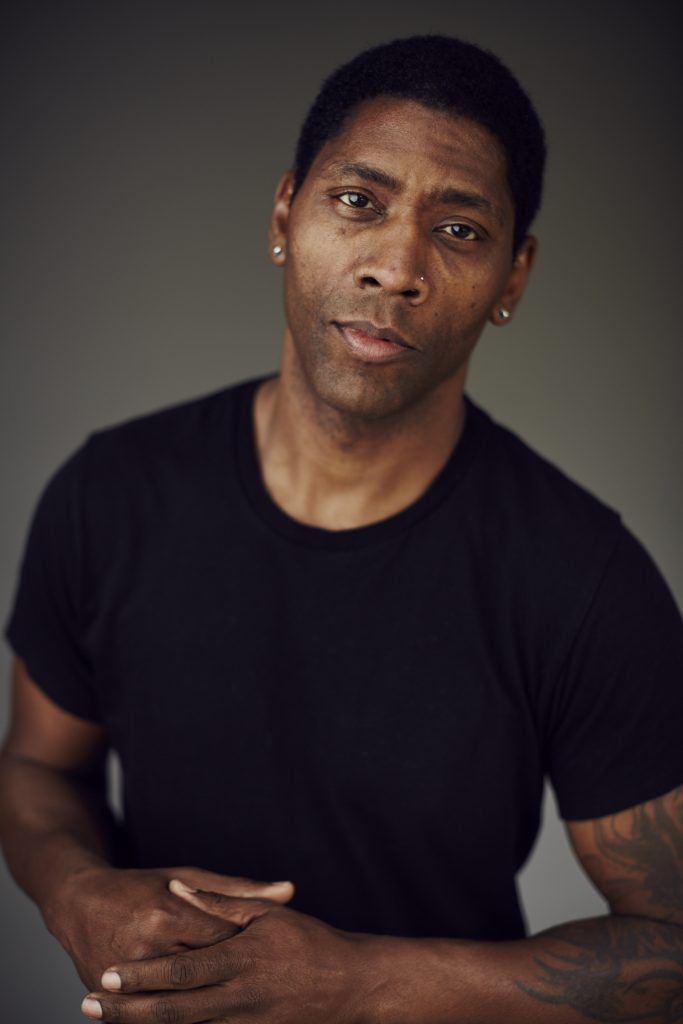
AF: There are clearly a lot of players and a lot of unique stories for everyone on this team. How did you all split the work and how did you decide which narratives to explore?
Michael Anthony Brown: Being able to work with such a talented team of editors on Wrexham was an amazing experience because we really shared in the creative joy. We all started with an episode that was “ours” to build scenes in, revolving around where we were in the season. But as the process went along we often would finish each other’s early edits as we passed things back and forth, depending on who was available. I think the end result was having sequences that touched each other’s very capable creative hands in the perfect way to end up the way that you see it now.
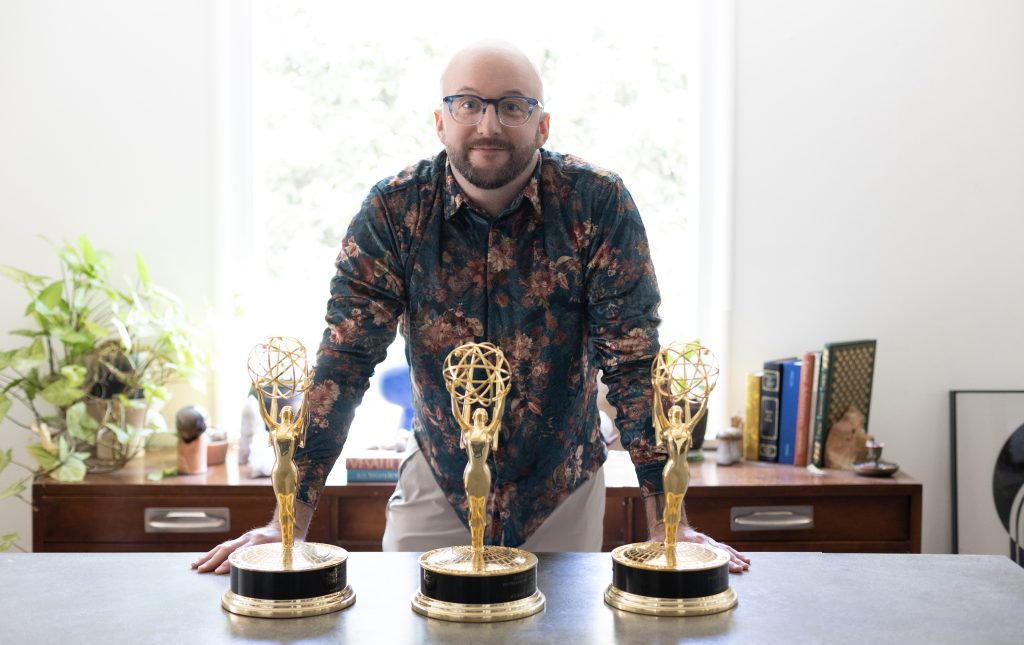
Curtis McConnell: The process was highly collaborative. While one editor usually helmed an individual episode, we all jumped in and touched multiple episodes. Sometimes it was just a scene here or there. Other times it was doing a lot more heavy lifting. Ultimately, I think we all have a sense of ownership of the entire series.
Mohamed El Manasterly: Our editing team consisted of four editors. Welcome to Wrexham thrived on a pure collaborative approach, with each of us contributing to every episode. The post-production team’s planning strategy was truly ingenious. For instance, I might build an episode, only for another editor to finish it, and vice versa. This dynamic workflow was instrumental in infusing each episode with multiple distinct viewpoints, resulting in a fast evolution of the show’s development.
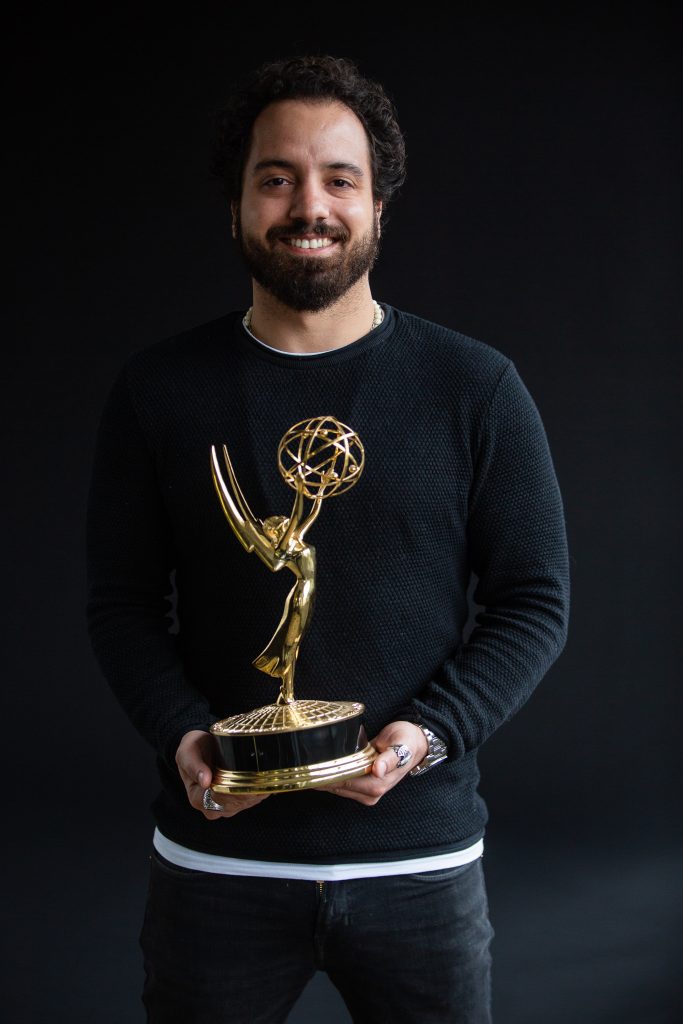
Charles Little II, ACE: I can’t say there was a specific protocol to how the work was divided amongst editors on Welcome To Wrexham. It was a process that evolved in real time and we embraced that characteristic as honoring the story’s authenticity was always top of mind. We handed material to whom was available when they were available or sometimes to whom we felt may have been best suited for a particular situation or character scenario. I thrived cutting scenes from the raw and Curtis and Michael were masters at the match sequences and Micho (Mohamed El Manasterly )well he’s just great at everything.
AF: How did you design the language and comedic aspects of the show? And specifically, who came up with the overlays defining Welsh vs. English terms?
Michael Anthony Brown: Well, when you have two of the masters of comedy in Rob and Ryan, the comedy comes fast and specific. There is a natural comedic timing that the Welsh people give naturally in the way that they banter with each other, so we identified those moments and made sure to let those live as we developed the town of Wrexham itself as a character. I think it was Rob who came up with the text on screen. He became somewhat of an expert by learning welsh and was excited to pass along some new phrases.
Curtis McConnell: I learned a lot about working with comedy while on this show. It’s different from scripted comedy. We didn’t ever want to “make fun” of anyone, especially just for the sake of a laugh. But the people of Wrexham are naturally very witty people, so we were able to just let them be themselves, and it’s pretty funny. Rob was vital in giving us those little elements (like text-on-screen) that gave the show a little more comedy juice.
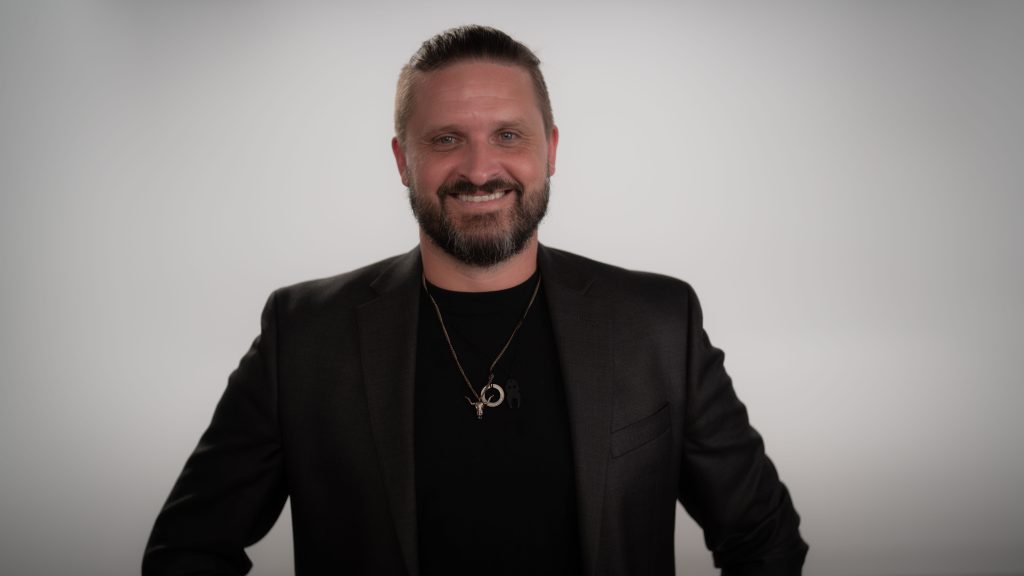
Mohamed El Manasterly: We were incredibly fortunate to work on a show that carried a comedic undertone. The people of Wrexham had a quirky nature, and with Rob McElhenney and Ryan Reynolds being prominent Hollywood comedy actors, humor came naturally. Unearthing the comedy in the footage was an evolutionary process for us as editors. We meticulously selected moments that brought laughter, but then collectively dissected each joke as a team. Our diverse team composition played a pivotal role in this process. I hail from North Africa, Curtis McConnell from South Africa, Charles Little II is Black, and Michael Brown is White. It was fascinating to observe how each of us responded to humor based on our cultural backgrounds. My Egyptian background tends to embrace edgier comedy, which might be received differently by Michael, for example. This dynamic led us to engage in ongoing discussions to determine what was universally appropriate and enjoyable for everyone involved.
Charles Little II, ACE: The series’ vernacular and devices stemmed from a steady flow of ideas, experiments and offerings from most notably our showrunner John Henion and Rob and Ryan. But in my opinion the town, the people and the culture of Wales, as well as the culture of English Football, provided the unique inspirations that lead to what the world ultimately experienced as season 1 of Welcome To Wrexham.
AF: It was interesting to see everyone coming up together – the team, the creatives, the owners, and the town. What was the most surprising element or curve ball you found throughout editing the show?
Michael Anthony Brown: Not really surprising, but the repetition of the pace of their season, playing 2 matches a week, and wanting to always find unique ways to tell the stories of the matches that didn’t feel repetitive or “fit to fill”. We relied a lot on telling the stories of the matches through the eyes of a particular character that we were spending time with during a particular episode.
Curtis McConnell: When we were structuring the episodes, there was a constant conversation of “what purpose does this serve?” That was especially important with the matches. With so many played in the season, we had to pinpoint which games to highlight that would push our story forward.
Mohamed El Manasterly: Each episode had its own challenge, but one of the most common challenges was the matches, given the repetitive nature of it. The main challenge revolved around maintaining freshness in our approach to each match and avoiding repetition. The solution emerged in the form of crafting a distinct theme for every episode and match. Themes such as Legacy, Family, and History acted as the interpretative lens through which we examined the material. Each episode focused on 2 or 3 characters, with the narrative of each match being conveyed from their perspectives. Whether focusing on players, coaches, or even fans, the angle was shaped by the character’s perspective. We deliberately started each game in various ways—occasionally by capturing players’ preparations at their homes, sometimes diving into a match midstream when Wrexham was behind, and so on. This approach made every game feel fresh and new.
Charles Little II, ACE: The curve ball for me was trying to honor a culture that I was being introduced to with every beat. I was constantly surprised to find the commonalities amongst the differences as I cut intimate scenes at the players’ homes with their families and the conversations between the townspeople at familiar locales like a breakfast cafe or a corner pub or the burger stand outside the Turf pub near the racecourse. I had to repeatedly reset myself and try to pull back in an effort to find enough objectivity amidst the subjective experience I was having with the material. I guess you could call that as much of a gift as a challenge.
AF: One of the greatest aspects of the show was the ability to look at the elephant in the room. Can we do this? Why are we doing this? And why are two Hollywood execs buying a Welsh football team? Was there vulnerability and authenticity in pursuing this underdog story from the get-go, or was something you realized towards the end of the editing process?
Michael Anthony Brown: From the get go this was the number one priority. I mean, when you see how raw and emotive all of these characters are on camera, that’s them; pouring their hearts out and talking about their own personal struggles and journeys in ways that I haven’t ever seen before on other projects in my past.
Curtis McConnell: I attribute a lot to our field team for earning the trust of local people and getting the vulnerability that we see in the show. Plus the reality is, Wrexham as a town have been living as underdogs, not only in football but in society, for decades. They have so much pride in their town and I think there was an enthusiasm to let it shine. Rob and Ryan were also willing to be completely honest and transparent in their endeavor, which is rarely seen from people in their positions.
Mohamed El Manasterly: From day one, I fell in love with the town, the people, and the players. The way our production team integrated with the characters over an extended period was incredible. In the realm of vérité documentary, it requires time and effort for the characters to ease into the camera’s presence and become uninhibited. Throughout the editing process, we bore witness to the gradual evolution and unfolding of our characters’ stories, impacting how we structured our eighteen episodes. It’s both a privilege and a challenge to work with footage of this nature.
Charles Little II, ACE: The aspect of “can we do this?” and “why are we doing this?” was present from day one and an ever-present reminder of the mission that I was serving in the editor’s chair.
AF: A character of its own was the musical element of the show. What kind of relationship did you have with composer Giosuè Greco?
Michael Anthony Brown: Our Showrunner John Henion brought Gio on and we all talked about making sure that the instrumentation represents a “welsh sound.” I would often pick very sparse single stringed instrument temp tracks that I could pace out scene sets to, or robust orchestral music for gameplay that then Gio would come back through and score tracks with that beautiful Welsh spin. He also provided a lot of great cues that were independent, and just inspired from his own head. He is a musical force.
Curtis McConnell: I think Gio was the perfect choice for the show. He has a musical sensibility that elicits very basal emotions, but it never feels forced or manipulative.
Mohamed El Manasterly: Due to my musical background, music plays a significant role in shaping my edits. I begin by structuring the scene without music, ensuring it logically flows. Then, I experiment with various types of music. Music’s influence in editing transcends boundaries, allowing me to respond to the footage intuitively, moving beyond mere logic. It helps me remove sound bits and rely on visuals. For that reason I invest a lot of time searching for suitable tracks for my scenes. These tracks act as a starting point for discussions with Greco, who did an exceptional job. Sometimes, we appreciate the reference track so much that we choose to license it.
Charles Little II, ACE: I never actually had the fortune of collaborating directly with Greco but since the completion of series’ first season, the Welcome To Wrexham soundtrack has become a prized addition to my personal film score library.
AF: There’s a lot of loss, a lot of triumph. I think we can all agree that the line that ties this show together is the heart. Was there a bottom line that kept you wanting to come back each episode?
Michael Anthony Brown: I think it’s seeing it through. As a sports fan myself, no matter how the season goes, you’re rooting each game like it’s the only one left. I think every sports fan has been there before; and you keep watching episode to episode because you’re rooting for them to finally see a piece of the sun through cloudy skies.
Curtis McConnell: So much of the identity of the people of Wrexham is in their Club. The wins and losses of the team felt personal to everyone. Over time, you begin to feel a taste of what they’ve been feeling their entire lives. It makes you want to root for them as much as the team. And it was cool to see Rob and Ryan get hooked in the same way. Their emotional investment in the Club is authentic.
Mohamed El Manasterly: Welcome To Wrexham was an enjoyable show to edit, with intriguing characters, Hollywood stars, and thrilling matches. However, it’s worth noting that the production approach taken by Boardwalk was truly exceptional. They managed to streamline the typically chaotic process of documentaries, aligning it with industry standards and creating a well-balanced schedule that allowed for creativity and experimentation. Moreover, the privilege of collaborating with my editing team was a true blessing. Every morning, I wake up excited to dive into my Avid workstation, eager to immerse myself in the characters’ journeys and begin molding their narratives.
Charles Little II, ACE: At the risk of sounding cliché for me it’d have to be the age old “and then…” that was my north star. The desire to turn the page to see what was going to happen next was as much a motivator to me as a follower of these stories as it was being a teller of them. The townspeople all had compelling individual stories and the subtext was endless just like in real life. The players, the coaches, Rob, Ryan, Humphrey Ker, Shaun Harvey, Wayne Jones, the families and wives, from cancer to personal issues. It all just made me feel a little less insecure about the crazy in my own life and kept me laughing out loud in the edit chair. Up The Town!!!
FX’s Welcome to Wrexham returns with season two on September 12 at 10pm ET/PT, streaming next day on Hulu. (Streaming from 13 September on Disney+ in the UK.)


